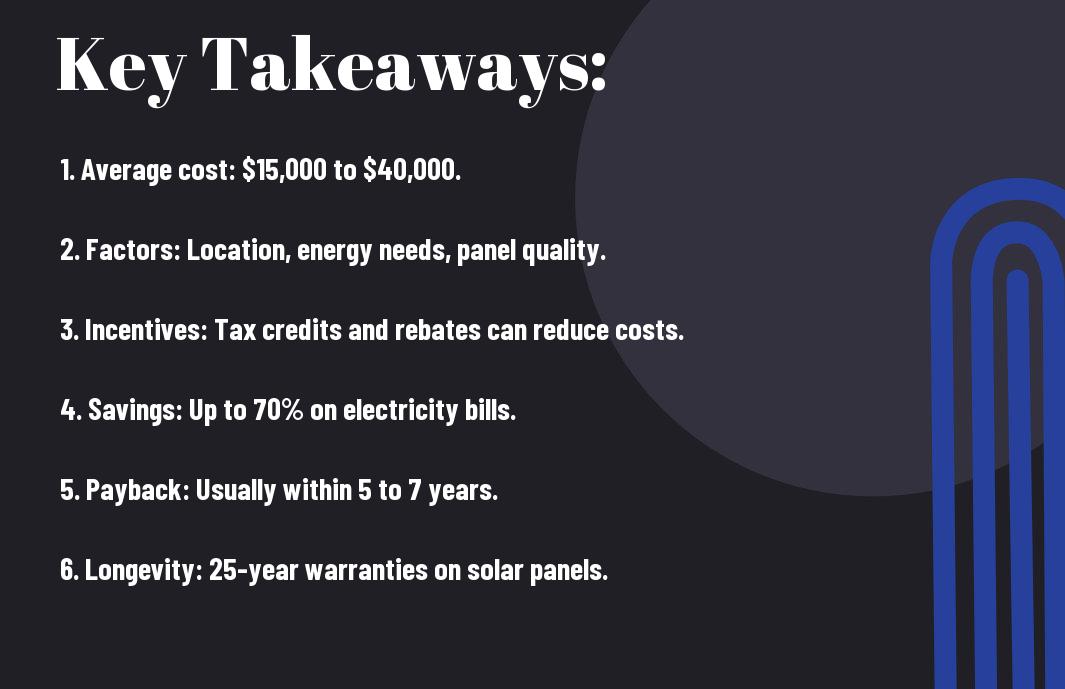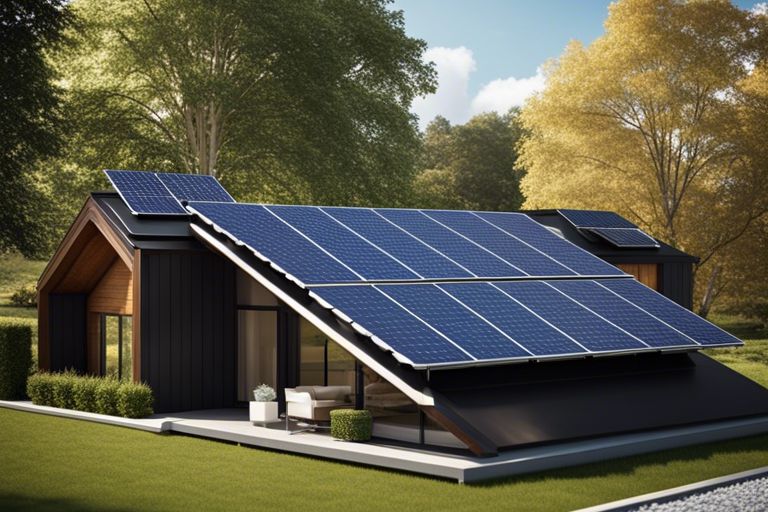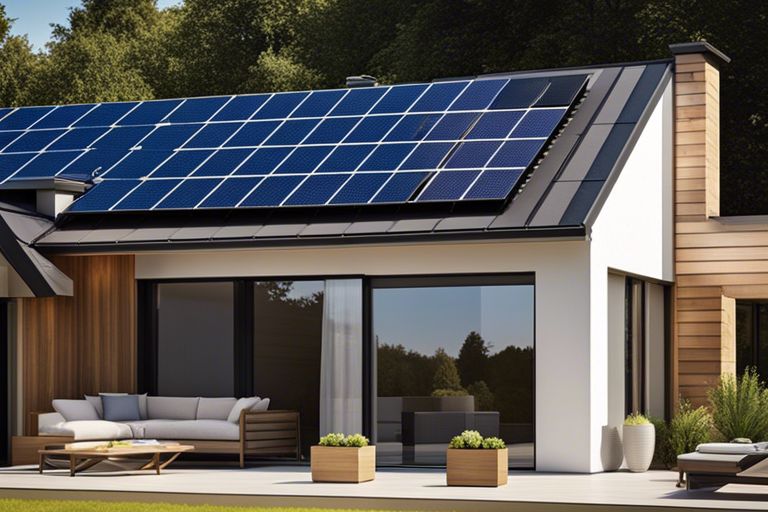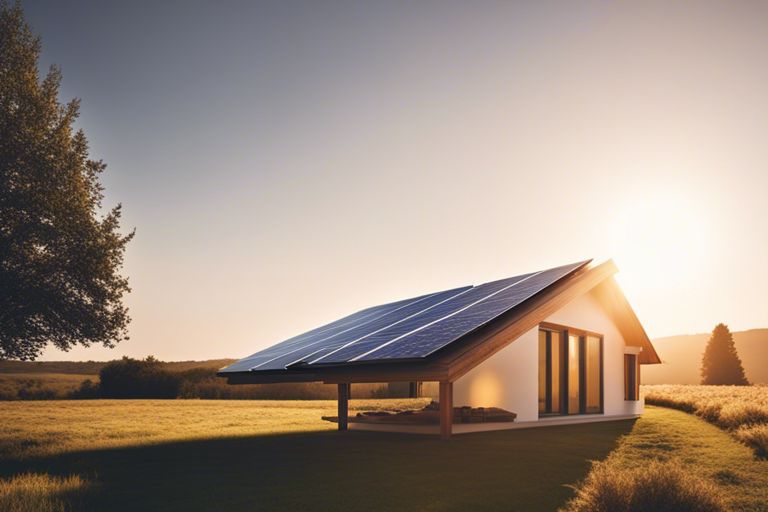Household energy costs can be a significant expense, but have you ever considered the benefits of investing in a solar system for your 2000 sq ft house? Understanding the cost of solar panels and installation is crucial in making an informed decision. In this article, we will break down the factors that determine the cost of a solar system for a house of your size, allowing you to weigh the financial investment against long-term savings and environmental benefits.
Key Takeaways:
- Solar system cost: The cost of a solar system for a 2000 sq ft house can range from $15,000 to $40,000 before tax credits and incentives.
- Factors affecting cost: The final cost of the solar system depends on factors such as energy consumption, location, roof type, and desired system size.
- Long-term savings: While the initial investment may seem high, homeowners can save thousands of dollars on electricity bills over the lifespan of the solar system.

Determining Your Energy Needs
Calculating Your Energy Consumption
For a 2000 sq ft house, calculating your energy consumption is important in determining the size of the solar system you will need. Any reputable solar energy provider can help you calculate your current energy usage based on your utility bills and the specific energy needs of your household.
Factors Affecting Energy Usage in a 2000 sq ft House
Energy usage in a 2000 sq ft house can be influenced by several factors. Any solar system provider will consider variables such as the number of occupants in your home, the climate of your location, the efficiency of your appliances, and your daily energy consumption habits. Knowing these factors will help you tailor a solar system that meets your specific needs.
- Solar panel orientation and tilt
- Roof shading and obstructions
- Insulation and air leakage in the house
Energy efficiency in a 2000 sq ft house can be optimized by taking into account various factors. A solar energy provider can assess your house’s energy consumption patterns to help you select the most suitable solar system. Knowing how these factors impact your energy usage will allow you to make informed decisions to maximize the benefits of solar energy for your home.
Types of Solar Systems
Little do you know, there are different types of solar systems to choose from when considering installing one for your 2000 sq ft house. Recognizing this variety can help you make an informed decision based on your specific needs and preferences. Importantly, the information is broken down into a simple table format below:
| Monocrystalline Silicon Solar Panels | Polycrystalline Silicon Solar Panels |
| Amorphous Silicon Solar Panels | Thin-Film Solar Panels |
| Concentrated PV Cell Panels | Organic Photovoltaic Cells |
Monocrystalline Silicon Solar Panels
Types of solar panels like monocrystalline silicon panels are known for their high efficiency and sleek look. These panels are made from single-crystal silicon, giving them better performance in low light conditions and higher heat tolerance compared to other types. If you have limited roof space but want to maximize energy production, monocrystalline panels could be the ideal choice for your 2000 sq ft house.
Polycrystalline Silicon Solar Panels
Polycrystalline silicon panels are another popular option for residential solar systems. These panels are made from silicon crystals melted together, making them more affordable to produce than monocrystalline panels. Aesthetically, they may have a speckled blue color due to the multiple crystals used in their construction. The efficiency of polycrystalline panels is slightly lower than monocrystalline panels, but they still provide a cost-effective solution for your solar energy needs.
A mix of budget-friendly pricing and decent efficiency makes polycrystalline silicon solar panels a practical choice for homeowners looking to go solar without breaking the bank.
Thin-Film Solar Panels
An alternative to traditional silicon panels is thin-film solar technology. These panels are made by depositing a thin layer of photovoltaic material onto a substrate like glass, metal, or plastic. Thin-film panels are lightweight, flexible, and can be easily integrated into building materials, making them a versatile option for your 2000 sq ft house. With lower efficiency compared to crystalline panels, thin-film technology works best in larger installations where space is not a limitation.
With their unique characteristics, thin-film solar panels offer a more customizable and adaptable solution for your solar energy needs.

System Size and Configuration
To find out how much a solar system for your 2000 sq ft house will cost, you can refer to this informative guide on How Much Do Solar Panels Cost for a 2000 Square Foot Home. Understanding the system size and configuration is crucial in determining the overall cost and efficiency of your solar setup.
How Many Solar Panels Do You Need?
On average, a 2000 sq ft house may require between 16 to 36 solar panels to meet its energy needs. The exact number of panels needed depends on factors such as the amount of sunlight your location receives, your energy consumption habits, and the efficiency of the solar panels you choose. You can consult with a solar specialist to conduct an energy audit and assess your specific requirements.
System Design and Layout Considerations
Size matters when it comes to designing your solar system for a 2000 sq ft house. The orientation of your roof, shading from surrounding trees or buildings, and the angle of your roof can all impact the efficiency of your solar panels. A well-designed system takes these factors into account to maximize energy production and ensure optimal performance.
Understanding the intricacies of system design and layout considerations is necessary to make the most of your investment in solar energy. By optimizing the placement and configuration of your solar panels, you can enhance energy production and potentially save on costs in the long run.
Cost Factors
Now, let’s break down the various factors that contribute to the overall cost of installing a solar system for your 2000 sq ft house:
- Equipment Costs: Panels, Inverters, and Mounting Hardware
An necessary component of the cost of a solar system is the equipment itself. This includes the solar panels, inverters, and mounting hardware. The price of solar panels can vary based on the type and efficiency you choose. Inverters are vital for converting the direct current (DC) energy generated by the panels into alternating current (AC) for use in your home. Additionally, mounting hardware such as racks and rails are necessary to securely install the panels on your roof.
- Installation Costs: Labor, Permits, and Inspections
Mounting your solar panels, obtaining necessary permits, and scheduling inspections all contribute to the installation costs. Labor costs can vary depending on the complexity of the installation and the size of your system. Permit fees are required by most local governments to ensure that your solar system meets safety and building code regulations. Inspections are necessary to verify that your system is installed correctly and is up to code. Perceiving the full scope of these installation costs will give you a better understanding of the total investment required for your solar system.
For instance, the federal government offers the Investment Tax Credit (ITC), which allows you to deduct a percentage of your solar system costs from your federal taxes. State and local incentives and rebates may also be available to help offset the upfront costs of installing solar panels on your home.
Average Costs for a 2000 sq ft House
Despite the upfront costs of installing a solar system, the long-term benefits can outweigh the initial investment. When considering the average costs for a 2000 sq ft house, there are several key factors to keep in mind to help you make an informed decision.
Total System Cost
With a 2000 sq ft house, the total system cost for a solar installation can range anywhere from $15,000 to $30,000 or more, depending on the size of the system, quality of panels, and installation fees. It’s imperative to get quotes from multiple reputable solar companies to ensure you are getting the best value for your money.
Cost per Watt
Cost per watt is another critical factor to consider when calculating the total cost of a solar system for your 2000 sq ft house. On average, solar panels cost between $2.50 to $3.50 per watt. The higher the efficiency and quality of the panels, the higher the cost per watt will be.
Understanding the cost per watt can help you compare quotes from different solar providers and determine which option offers the best balance of quality and affordability for your specific needs.
Payback Period and Return on Investment
Cost
Investment

Additional Considerations
Battery Backup and Energy Storage
Considerations around battery backup and energy storage are imperative when planning your solar system for a 2000 sq ft house. Adding a battery backup system allows you to store excess energy generated by your solar panels for use during periods of low sunlight or power outages. This can provide you with greater energy independence and peace of mind.
Grid Connection and Net Metering
Considerations regarding grid connection and net metering are crucial factors to keep in mind when installing a solar system for your 2000 sq ft house. Connecting your solar system to the grid allows you to sell excess energy back to your utility company through a process known as net metering. This can help offset your electricity costs and even earn you credits on your utility bill.
Backup power is also important to consider in case of emergencies or when your solar panels are not producing enough energy to meet your needs. Having a grid connection ensures that you can still access electricity from your utility company when necessary.
Maintenance and Repair Costs
Storage considerations include factoring in maintenance and repair costs for your solar system. While solar panels are generally low maintenance, it’s important to budget for occasional repairs or upkeep to ensure that your system continues to operate efficiently. Understanding these costs upfront can help you plan and budget effectively for the long term.
Grid infrastructure plays a role in maintenance and repairs, as any issues with the grid connection can affect the performance of your solar system. It’s important to have a professional inspect and maintain both your solar panels and grid connection to prevent any potential problems or disruptions in energy production.
Summing up
So, if you’re considering installing a solar system for your 2000 sq ft house, you can expect to pay between $15,000 to $45,000 before any rebates or incentives. Remember that the final cost will depend on various factors like the system size, location, and quality of equipment. It’s imperative to do thorough research, get multiple quotes, and explore financing options to find the best deal for your specific needs and budget.
By investing in a solar system, not only can you reduce your electricity bills and potentially increase the value of your home, but you can also contribute to a clean energy future. With the declining costs of solar technology and the availability of financial incentives, going solar for your 2000 sq ft house is becoming more accessible and cost-effective. So, take the time to assess your energy needs, consider the long-term benefits, and make an informed decision that aligns with your sustainability goals.
FAQ
Q: How much does a solar system cost for a 2000 sq ft house?
A: The cost of a solar system for a 2000 sq ft house can vary depending on several factors such as the quality and size of the system, your location, and any additional features you may want. On average, you can expect to pay between $15,000 to $30,000 for a solar system for a 2000 sq ft house.
Q: Are there any incentives or rebates available for installing a solar system on a 2000 sq ft house?
A: Yes, there are several incentives and rebates available for installing a solar system on a 2000 sq ft house. These can include federal tax credits, state-level incentives, utility rebates, and net metering programs. It is advisable to check with local authorities and solar providers to see what incentives you may qualify for.
Q: How long does it take to recoup the cost of a solar system for a 2000 sq ft house?
A: The payback period for a solar system on a 2000 sq ft house can vary depending on your energy usage, the cost of electricity in your area, and the incentives you are eligible for. On average, most homeowners recoup the cost of their solar system within 5 to 10 years through energy savings and incentives.
